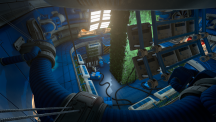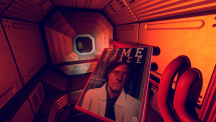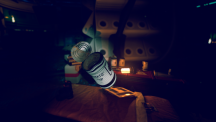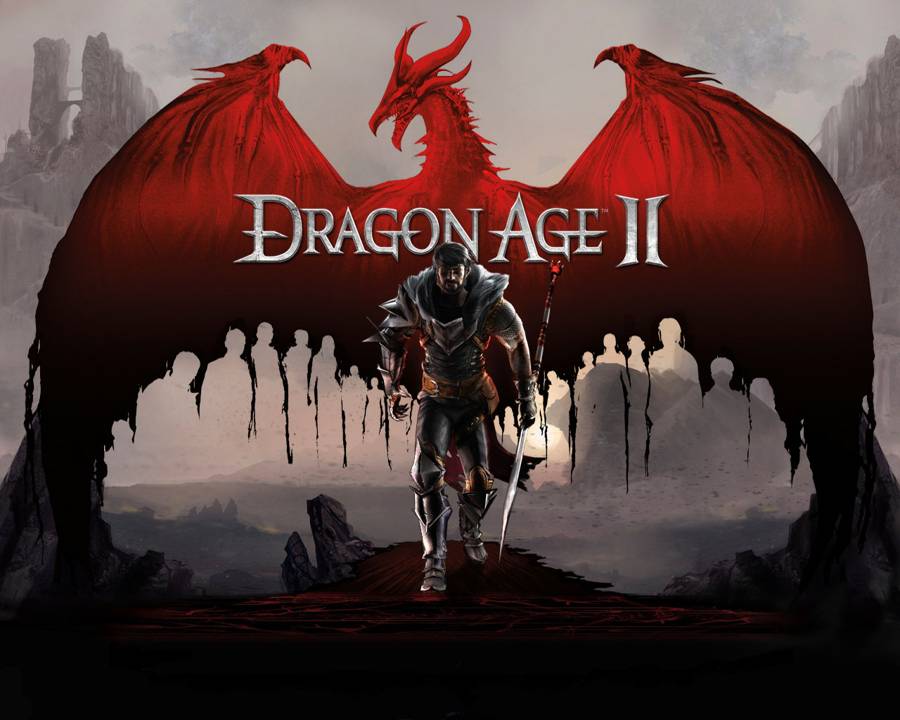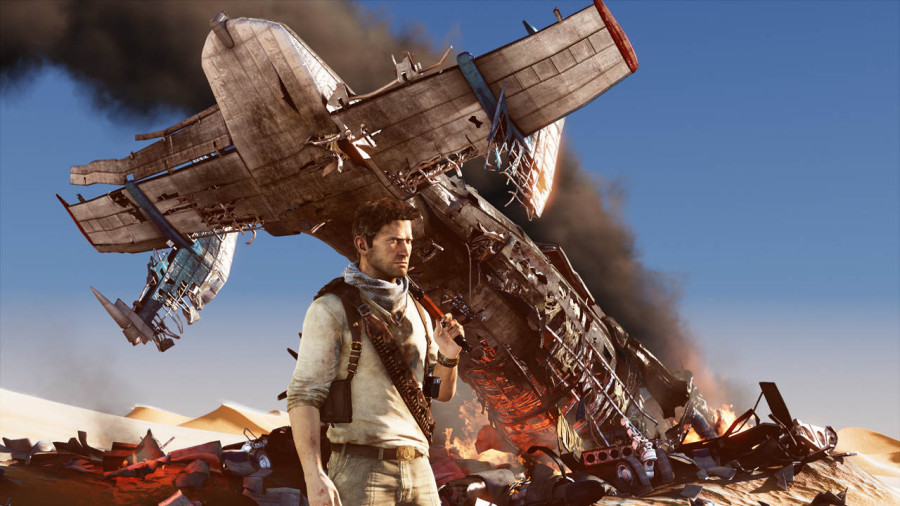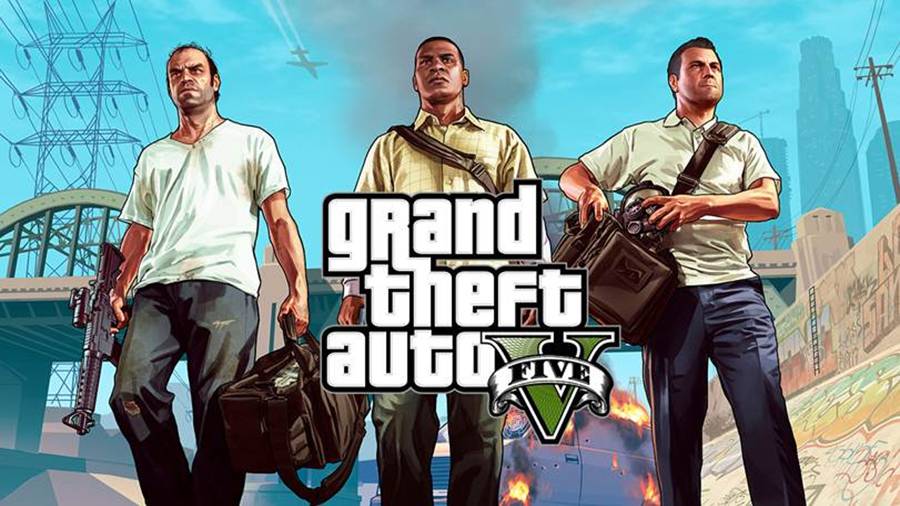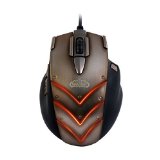

We first met with Finnish Mindfield Games back at GDC in March where they showed off their ambitious VR-powered adventure Pollen inside Unity's booth using an early version of Oculus Rift. What struck us was not only the sort of old-school space age design present on Titan-based Station M, but also the attention to detail, something that really helped build the sense of immersion.
The reasons for the somewhat old-school design of the station was laid bare today as Mindfield shed some light on the backstory and alternate history that serves as setup for the game. The basic turning point was that John F. Kennedy managed to survive an attempted assassination in Dallas. Afterwards the US and the Soviet Union combined their efforts to build a manned station on the moon, and man's exploration of space takes a very different path from the one we've taken in the real world.
"We began with this idea that all these great classic science fiction writers like Isaac Asimov and all those," explains Mindfield Games' co-founder and Pollen project lead Olli Sinerma. "So we took pretty much their world and decided that that is what happened. What they thought in the '50s and '60s what the year 2000 would look like. So we went with that idea. The world changed so it became as the design was in the 1960s in Dallas when in our world [the world of Pollen] Kennedy was not shot, but actually his bodyguard took a bullet."
"In our world [the US and the Soviet Union] joined along, and 30 years later human beings have moved to space and we have outposts on Mars, on the Moon, and one of them is on Titan. On the Saturnian moon. It's pretty much common place in Pollen that you have a job in outer space. It's something comparable to have a job at the Arctic circle. It's not totally unheard of, it's pretty common and of course it's really isolated."
"Everybody in the company had been reading [early sci-fi works] since they were kids. We wanted to see more of that ourselves, and not just only see it but experience it. Get inside the world that those guys designed. We had of course gotten inside them by reading the books or watching the movies that had been made out of them, but now with virtual reality it was actually possible to just put on the helmet and you're inside it."
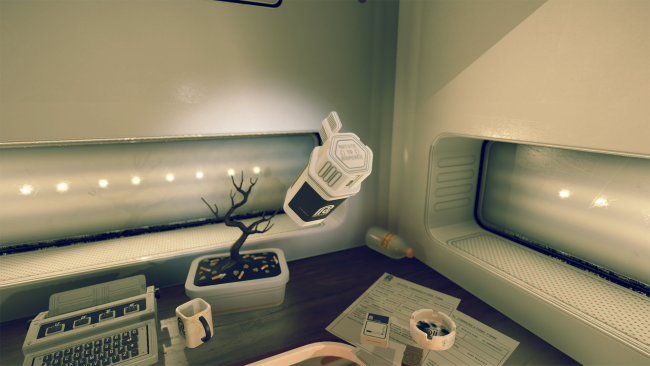
What we wanted to know was what attracted the studio to these early works of science fiction and their associated worlds?
"One thing that is really cool in the science fiction that those guys wrote is that it's scientifically accurate. Even though it's science fiction they tried to really understand how the physics work in the real world, and write their science fiction according to that. So in Pollen we also try to be as scientifically accurate as possible. Now we're getting The Martian movie, which I think is pretty funny, because The Martian is really close to Pollen, story-wise."
Even if man has established more of a foothold in space in Pollen's version of events, it's still fairly modest.
"The things that [early science fiction writers] knew was that the laws of physics could not be broken that easily," says Sinerma. "Travelling at the speed of light, how it would effect people. So we have taken that into account in Pollen also. "
"That is why we're not jumping between different stars. And even travelling to Titan in the world of Pollen takes more than three weeks."
Sinerma also went on record detailing the meticulous work that has gone into the objects you'll find on the space station and the people who once populated it.
"We have two story writers working along with us and they pretty much imagined sort of like a dollhouse, the whole station, and they played out two years of developments in the station. What kind of people they would hire there? What would be their areas of expertise? What would they be doing? What kind of personalities would these people have? And what background would they have? So it's a really extensive world that was built behind it."
"And then, as I was saying about the dollhouse, what would these people do on the station? And pretty much all the time they did something they were thinking 'okay, would it leave some kind of mark? Would there be left something, of course, post-it notes are really a common place thing, but would they bring something from Earth with them? Where would they have these objects? That is pretty much how the world was populated."
"To keep the story consistent, of course, the technology was designed beforehand. This are the computers they have. This is the kind of space travel they have. This is how long it takes to get to Titan from Earth. This is what the politics on Earth are, even. The background is humungous. But the idea is not that we're trying to do everything inside the game, but just to keep it consistent."
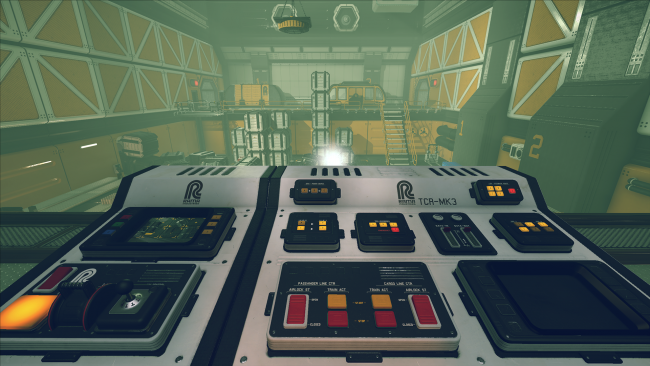
Pollen can be described as a very slow-paced adventure game where the player is tasked with figuring out what happened to the previous residents of Station M on Titan.
"Usually in these kind of games you have this inner voice, when you see an object the inner voice tells you what you need to understand from the object," says Sinerma. "In Pollen we don't do that. We let you figure out how things work. That is something that we took from Kubrick. If you have seen 2001: A Space Odyssey, in the beginning there's a bunch of apes that are beating each other and shouting at each other and in the main feature you are in space. The viewer is not exactly told why it is so, but if you watch it a couple of times you start to figure out that the Monolith pretty much advanced them forward. The same idea is in Pollen that you probably won't understand everything in one run, but you will get the main idea. And maybe if you play it a second time you'll start to figure out that this connects to that thing, this person was doing that and finally you get the full story."
Currently the studio is focussing their efforts on optimisation, making sure the frame-rate is where it needs to and implementing the various hand controls (Oculus Touch, Steam VR controllers, PlayStation Move). They are also looking into how to possibly implement Lighthouse compatibility so you can actually walk around the environments. Mindfield are experimenting with various solutions for this to see what might possibly fit:
"For instance you can do blinking so you teleport yourself around, that is something we have tested," says Sinerma. "Or we can make the room so that if you walk to the edge of it you can pretty much say that now I want to move forward and then it skips forward and you are in the maximum distance. There are plenty of options."
Sinerma also detailed the many little things that can cause locomotion sickness in the game, and how they are pretty much allowing the player options to customise the controls and certain aspects of the experience to their liking. Of course, that means that everyone won't get the ideal experience right out of the box.
"Pretty much the only way to get locomotion working for everyone out of the box is that you actually move with your own feet."
"It's funny that that's a problem Star Trek never had in their Holo Decks if you remember how Captain Kirk or Picard walked, they never bumped into a wall or anything like that."
As for the release date, Pollen will launch with the upcoming VR headsets and the date cannot be communicated at this time.
"We will be a launch game for virtual reality helmets," says Sinerma. "We have some info on the dates, but they cannot be released yet. But it's early 2016."
"I definitely think that virtual reality is going to be the big thing of 2016. Consumer virtual reality. Of course, you can already buy a DK2 from Oculus or get your Gear VR, now that it's coming down to $99 it's much better solution for consumers. I think mobile VR is going to be really great. It's going to be something that people start to explore. But it's still going to be a premium niche device in the beginning. Especially because there's not that much content until you start to get all the YouTube videos on it, Netflix, and these endless experiences like Minecraft. But for premium games that have been designed for VR there's a really small amount of them, mostly seated experiences like all the space shooters, and driving games and airplane games, but walking games are really rare."
